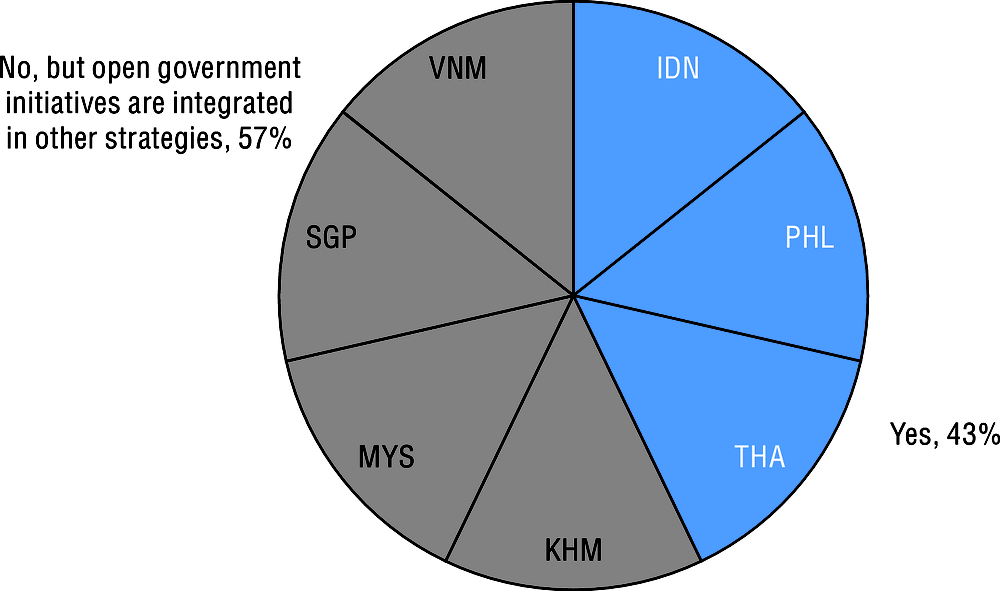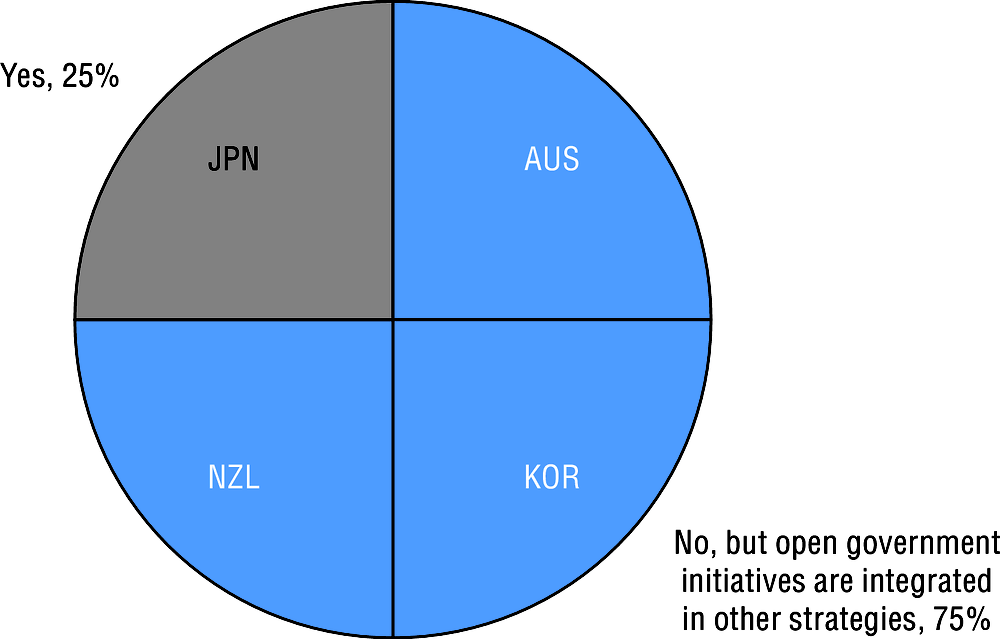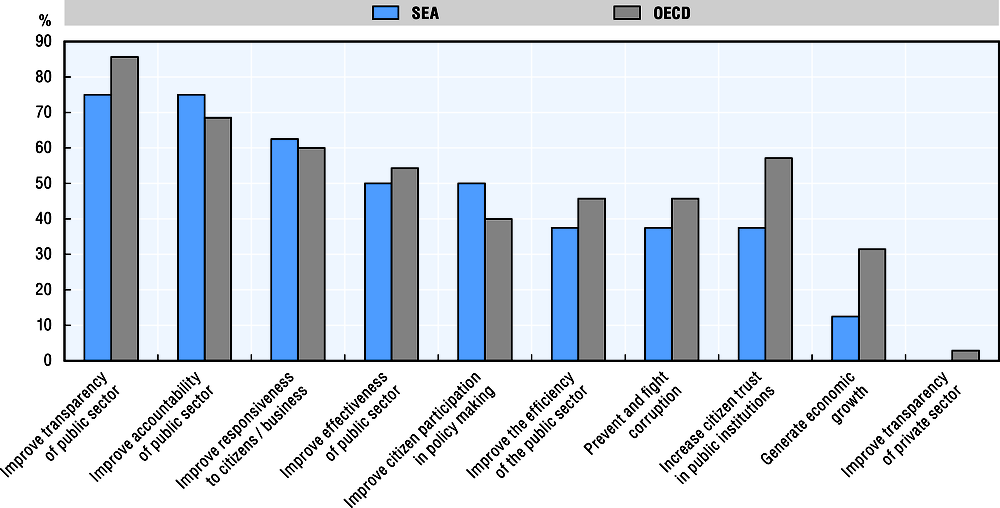Open government is understood as “a culture of governance that promotes the principles of transparency, integrity, accountability and stakeholder participation in support of democracy and inclusive growth” (OECD, 2016). These principles are fundamental pillars of good governance. In light of the continued challenges governments face of reduced trust in public institutions and public disengagement, the role of open government is to strengthen public administrations and build an effective, responsive and inclusive relationship between governments and stakeholders. Ultimately, open government principles and practices promote transparency, citizen-centric approaches to improving the design and delivery of public services and greater accountability to build and maintain citizen trust.
Having a country-tailored definition for open government helps ensure that open government activities incorporate initiatives implemented by institutions across the public administration. None of the SEA countries has a country-tailored definition. Malaysia, the Philippines and Thailand have adopted a definition for open government from an external source, such as from the OECD or the Open Government Partnership (OGP). This contrasts with 49% of OECD countries that have developed an open government definition themselves.
Moreover, having a strategy plays an important role in consolidating initiatives across government and facilitating a focus on long-term and cross-cutting goals of the open government reform process. Of the seven SEA countries, all of them have either elaborated their own open government strategy, such as Indonesia, the Philippines and Thailand, or have integrated open government activities in other strategies, such as Cambodia, Malaysia, Singapore and Viet Nam.
In the region, Japan has a single national open government strategy, whereas Australia, Korea and New Zealand have integrated open government activities in other strategies. Among OECD respondents as a whole, 49% have an open government strategy and 51% have integrated them into other strategies.
Notably, in SEA only Thailand and Viet Nam have an overarching document (such as a strategy, policy, directive, guide, etc.) focused on citizen participation in the policy cycle.
Indonesia, the Philippines and Thailand have all involved relevant central government institutions, civil society and non-government organisations (NGOs) in creating the strategy. As members of the OGP, Indonesia and the Philippines also involve the OGP support unit. None of the countries, however, involved media organisations or journalists despite the role that this sector can play in promoting the open government objectives of transparency and accountability, as well as in potentially improving and creating buy-in. It should be noted, however, that OECD data show only Mexico, the Netherlands and Spain involving media and journalists in creating their national open government strategies, so this is not a widespread trend in OECD countries either.
For six of the SEA countries, the main objectives that governments intend to achieve by implementing open government initiatives include improving public sector transparency and improving public sector accountability.
Meanwhile, only four countries (Malaysia, the Philippines, Singapore and Thailand) noted that improving citizen participation in policy making is a key national objective. Equally, only four countries (Indonesia, Malaysia, Singapore and Viet Nam) prioritise improving the effectiveness of the public sector. However, both of these objectives are key to achieving the over-arching aim of a citizen-centric approach to policy making.
These findings are similar to OECD countries, where the order of priorities follows a similar pattern. Eighty six per cent of OECD countries, including Australia, Japan and Korea, seek to improve the transparency of the public sector. The next most common key objectives are to improve public sector accountability (69%), improve the responsiveness of the public sector to the needs of citizens and business (60%), and increase citizen trust in public institutions (57%). The last of these objectives is a key priority in all OECD countries in the region except Japan.



